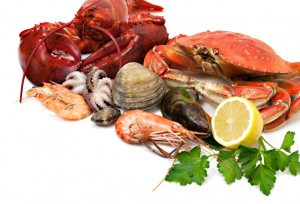Despite our growing demand for information about where the seafood we eat comes from, Americans seldom get answers when it comes to imported fish and seafood. That’s why a group of more than 500 chefs and restaurant owners are calling on government leaders to require that all seafood in U.S. markets can be traced.
 Improving traceability will prevent fraud and keep seafood, which is sometimes illegally mislabeled out of U.S. markets, the group says. “Recent studies have found that seafood may be mislabeled as often as 25 to 70 percent of the time for popular species like red snapper, wild salmon and Atlantic cod, disguising fish that are less desirable, cheaper or more readily available,” the group’s letter to government leaders says. “With about 1,700 different species of seafood from all over the world now available in the U.S., it is unrealistic to expect chefs and restaurant owners to be able to independently and accurately determine that the fish they are getting is actually the one they paid for. We should be able to tell our customers, without question, what they are eating as well as where, when and how it was caught.”
Improving traceability will prevent fraud and keep seafood, which is sometimes illegally mislabeled out of U.S. markets, the group says. “Recent studies have found that seafood may be mislabeled as often as 25 to 70 percent of the time for popular species like red snapper, wild salmon and Atlantic cod, disguising fish that are less desirable, cheaper or more readily available,” the group’s letter to government leaders says. “With about 1,700 different species of seafood from all over the world now available in the U.S., it is unrealistic to expect chefs and restaurant owners to be able to independently and accurately determine that the fish they are getting is actually the one they paid for. We should be able to tell our customers, without question, what they are eating as well as where, when and how it was caught.”
At least one lawmaker feels the same way. Earlier this month, Sen. Barbara Boxer (D-CA) urged FDA Commissioner Margaret Hamburg, to address the major issue of seafood fraud. “It is unacceptable that proven fraud is occurring on such a widespread basis. Seafood fraud is not only deceptive marketing, but it can pose serious health concerns, particularly for pregnant women seeking to limit exposure to heavy metals or individuals with serious allergies to certain types of fish,” Sen. Boxer said in her letter to the FDA.
Most of the seafood Americans eat, almost 86 percent, is imported. Yet only percentof imported seafood products are inspected by the FDA, and just 0.01 percent are specifically inspected for mislabeling, according to a 2009 Government Accountability Office report.
Traceability is also an essential part of food safety regulation, says food safety advocate and attorney Fred Pritzker, the publisher of Food Poisoning Bulletin. “Simply put, it is essential that every food’s supply chain from farm to retail store or foodservice outlet be known, recorded and easily accessed.”




